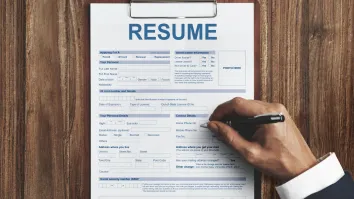Here's why Hong Kong-listed companies should play catch-up on ESG reporting
By Tony WongSince the Hong Kong Stock Exchange (HKEX) announced the upgrade of Environmental, Social, and Governance (ESG) disclosure requirement to 'Comply or Explain' in December 2015, listed companies have been acting more proactively in preparing their ESG reports.
As the Global Reporting Initiative (GRI) Data Partner for Hong Kong, Alaya Consulting has been following the reporting trend in Hong Kong closely and has recently conducted a research looking at how well listed companies are doing in terms of meeting the disclosure requirements set out by the HKEX.
We hope the survey would provide some useful insights to the first batch of listed companies that have to publish their ESG reports under the ‘Comply or Explain’ provision, as the 2016 financial year comes to an end.
The research examines the sustainability reporting practices of the Top 200 companies by market capitalisation listed on the HKEX. These 200 companies capture approximately 50% of the total market capitalisation, according to the HKEX database, encompassing the constituent stocks of Hang Seng Index and the MSCI Hong Kong Index.
In the long term, we believe with their size and resources, they should be able to set industry best practices for companies which have yet to start reporting on ESG in Hong Kong.
60% disclosed ESG performance
Our research finds that 60.5% of the top 200 companies have disclosed their ESG performances in the financial year of 2015, either in their annual report or a separate ESG report. However, if we only consider those who published an individual ESG report, the rate would drop to only 30% (60 out of 200).
With less than half of the Top 200 companies having issued a separate ESG report, we believe the value of reporting is somewhat not well communicated. And companies need to pay attention and make note to prepare their reports earlier in the year so as to meet HKEX's new requirement.
Early adopters have done a decent job
On a positive note, however, our findings show that companies that have already been publishing their ESG reports are not far from meeting the HKEX requirements. 41 of the 60 separately published reports (68%) were able to 'comply or explain' General Disclosures for all 11 environmental and social aspects in the latest ESG Reporting Guide; and another 55% of the companies included more than eight environmental KPIs in their separately published ESG reports.
But still, companies should continue to strive for quality reporting so as to meet the growing market expectations in the coming years.
Regarding the reporting framework, most of the separately published ESG reports followed either one or multiple guidelines—95% adopted either GRI Guidelines or HKEX ESG Guide for reporting.
While adherence to the ESG Guide is expected in the Hong Kong market, the adoption of the GRI framework indicates that a large majority of companies are willing to put effort into communicating their sustainability performance using a shared-common language, and thus reach out to their global audience.
However, when it comes to 'external assurance', less than half of the 60 separately published reports (45%) were externally assured. Among these reports, International Standard on Assurance (ISAE) 3000 is most widely used by companies, followed by AccountAbility's AA1000. A few reports (7%) were also externally assured, however they did not specify which corresponding assurance standards were used in their report.
In our view, even though the latest ESG guide have not yet required companies to be externally assured, it is still worth having these ESG reports externally assured as it ensures stakeholders, including institutional investors, the reliability and credibility of the report.
Assessing company-specific materiality
Materiality assessment is crucial to the overall quality of an ESG report. Companies striving for good quality reporting should therefore pay much attention in assessing materiality.
To the companies which have yet to publish sustainability information and those that are already doing so, we have the following recommendations:
1. Presenting your own materiality matrix: A materiality matrix is an effective tool to identify the topics of concern for the company and its stakeholders. We recommend companies to use the matrix to present their strategic priorities, making it transparent for all relevant stakeholders.
2. Migrating to GRI Standards: A majority of the companies with separate reports used both GRI and HKEX frameworks. With the presence of a linkage document, companies would find it easy to migrate from HKEX ESG to GRI Standards, which enables international peer comparison.
3. Getting third-party assurance: Although the latest ESG guide does not require reports to be assured, companies should consider externally assuring their reports to increase credibility and also take it as an opportunity to review internal process.
4. Increasing report accessibility: Great accessibility of reports would definitely allow the company to be transparent on its sustainability performance. According to the new HKEX guideline, ESG reports should be published on the Exchange's website and the issuer's website. Even though companies publish their reports online, some reports are difficult to locate on their websites.






















 Advertise
Advertise






